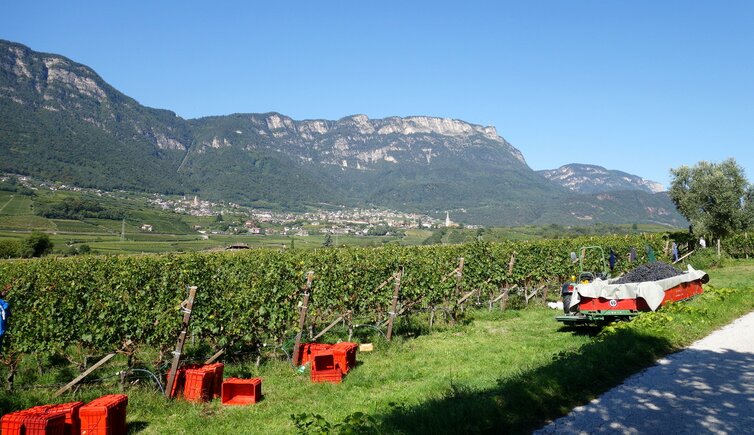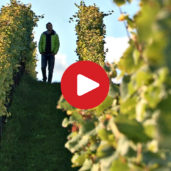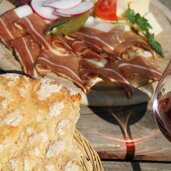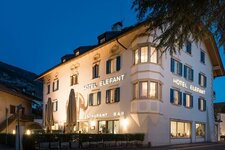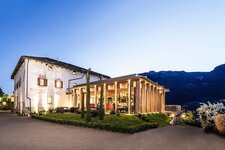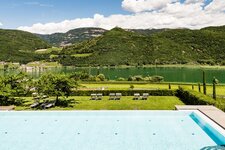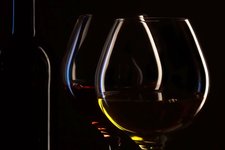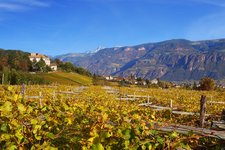The wine cellar is the realm of the cellar master - his work contributes significantly the quality of the noble wines
Image gallery: After the grape harvest
Once the grapes have reached the winery after the vintage in autumn, they are carefully selected by the cellarer and given into different fermentation vessels following strict quality and weight criteria. The further procedures completely depend on the type of the wine. With white and rosé wines, the grape juice is immediately pressed off the skins and fermented separately from seeds and stalks. With red wines, fermentation takes without separating the juice from the "Trester" - that's to say the skins, seeds and stalks - which results in different wine structures and colours.
Fermentation generally lasts from 8 to 14 days. After it, the wine is matured and developed by the cellar master. Most white wines as well as the red Vernatsch are characterised by a fruity flavour and a crisp bouquet - this is what has to be promoted or developed during maturation. Ideal is a brief maturation period in large wooden vessels or stainless steel tanks - a longer maturation in wooden barrels is only suited to a restricted number of wines.
The wines, which are suited to mature in larger and smaller oak vessels, the French barriques, include some white wine varieties as as well as strong red wines such as Lagrein, Pinot noir, Merlot and Cabernet. After two years, they are launched on the market as so-called "riservas". The rules for the maturation - in order to get the Italian high-quality indication of origin D.O.C. - are clearly-defined and vary from one area to the other.
When the appropriate maturation period is over, the wine is finally bottled. Depending on the kind of wine it might be stored for several weeks or months before it is sold. Some bottles are meant for immediate consumption, others, however, for further maturation in the cellar. There is one basic principle followed by every local winery: The wine is developed without any residual sugar being left. This applies to all South Tyrolean wines, except the specifically marked dessert or sweet wines and the half-dry Gewürztraminer. Well then, cheers!
